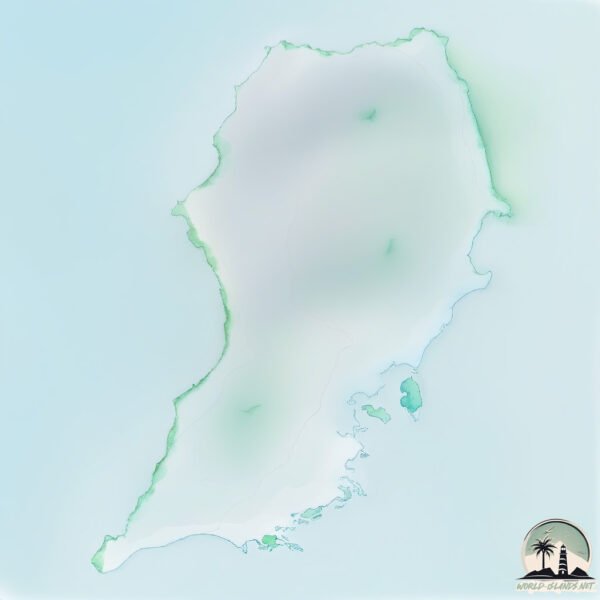San Salvador

Welcome to San Salvador, a Tropical island in the North Atlantic Ocean, part of the majestic Atlantic Ocean. This guide offers a comprehensive overview of what makes San Salvador unique – from its geography and climate to its population, infrastructure, and beyond. Dive into the details:
- Geography and Size: Explore the island’s size and location.
- Climate and Weather: Weather patterns and temperature.
- Topography and Nature: Uncover the natural wonders of the island.
- Infrastructure and Travelling: Insights on reaching, staying, and making the most of your visit.
- News and Headlines: Latest News.
Geography and size of San Salvador
Size: 150.7 km²
Coastline: 104.3 km
Ocean: Atlantic Ocean
Sea: North Atlantic Ocean
Continent: North America
San Salvador is a Large Island spanning 151 km² with a coastline of 104 km.
Archipel: Bahama Islands – An archipelago in the Atlantic Ocean, known for their stunning beaches, coral reefs, and vibrant culture.
Tectonic Plate: Eurasia – One of the world’s largest tectonic plates, the Eurasian Plate covers a significant portion of Europe and Asia. It’s characterized by diverse geological features, including the Ural Mountains, the European Plain, and the Himalayas formed from its collision with the Indian Plate.
The geographic heart of the island is pinpointed at these coordinates:
Latitude: 24.03772924 / Longitude: -74.49323033
Climate and weather of San Salvador
Climate Zone: Tropical
Climate Details: Tropical Savanna, Wet
Temperature: Hot
Climate Characteristics: Defined by distinct wet and dry seasons with high temperatures year-round. Pronounced rainfall occurs during the wet season, while the dry season is marked by drought.
Topography and nature of San Salvador
Timezone: UTC-05:00
Timezone places: America/New_York
Max. Elevation: 19 m
Mean Elevation: 8 m
Vegetation: Evergreen Broadleaf Forest
Tree Coverage: 92%
The mean elevation is 8 m. The highest elevation on the island reaches approximately 19 meters above sea level. The island is characterized by Plains: Flat, low-lying lands characterized by a maximum elevation of up to 200 meters. On islands, plains are typically coastal lowlands or central flat areas.
Dominating Vegetation: Evergreen Broadleaf Forest
Characterized by dense, lush canopies of broadleaf trees that retain their leaves year-round. These forests are typically found in tropical and subtropical regions and are known for their high biodiversity. San Salvador has a tree cover of 92 %.
Vegetation: 15 vegetation zones – Exceptionally Diverse Island
Islands with more than ten vegetation zones are among the most ecologically rich and varied in the world. These islands are akin to miniature continents, boasting an incredible array of ecosystems. The sheer range of habitats, from high peaks to deep valleys, rainforests to deserts, creates a mosaic of life that is unparalleled. They are crucial for conservation and ecological studies.
Infrastructure and Travelling to San Salvador
Does the island have a public airport? yes.
San Salvador has a public and scheduled airport. The following airports are located on this island: San Salvador Airport.
Does the island have a major port? yes.
San Salvador is home to a major port. The following ports are situated on the island: .
The mean population of San Salvador is 7 per km². San Salvador is Gently Populated. The island belongs to The Bahamas.
Continuing your journey, Rum Cay Island is the next notable island, situated merely km away.
San Salvador Bahamas Promo



The Bahamas is classified as Developing region: Regions characterized by lower income levels, with economies in the process of industrialization and modernization. The level of income is High income: nonOECD.
News – Latest Updates and Headlines from San Salvador
Stay informed with the most recent news and important headlines from San Salvador. Here’s a roundup of the latest developments.
Please note: The data used here has been primarily extracted from satellite readings. Deviations from exact values may occur, particularly regarding the height of elevations and population density. Land area and coastline measurements refer to average values at mean high tide.
